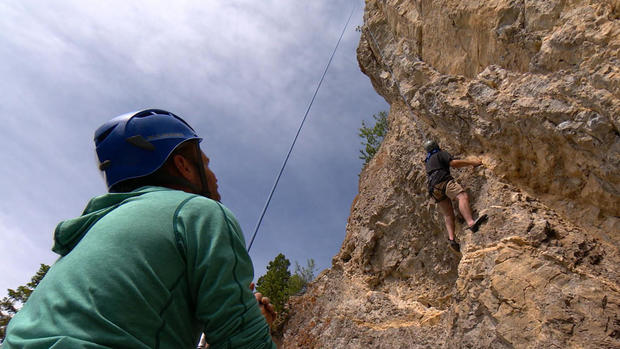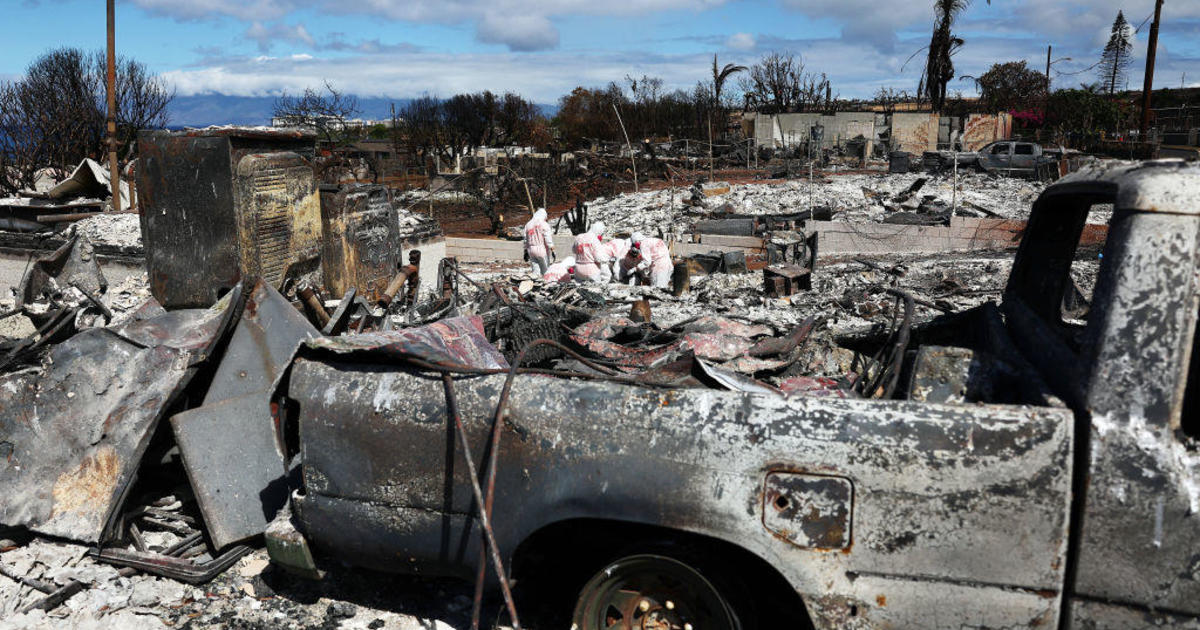World-class athlete develops unconventional program to help drug addicts
Lawmakers and activists are exploring new ways to treat substance abuse as the opioid crisis sweeps across the nation. A world-class athlete is developing an unconventional approach in Wyoming by taking addicts outdoors. CBS News correspondent Jeff Glor reports exposing addicts to the elements could help them recover.
Jackson Hole is one of the most exclusive resort locations in the world. It's a destination for extreme wealth and extreme athletes. The combination of skiing, climbing and hiking might be unparalleled. But the highs that come from adventure sports often lead thrill seekers to crave the same rush off the mountain.
That's where the problem -- and perhaps the solution -- starts. It's an unusual approach to an agonizing issue.
By putting people's hearts under extreme pressure, Ryan Burke believes he can retrain their brains.
"You know, outpatient or addiction therapy in the past has been a lot of talk," Burke said. "You know, a lot of, let's just sit around in a circle and chat about that, which is important. But it's more important to go out there and practice that skill under pressure to know what the body feels like and to know what you're capable of dealing with."
Burke is a world-class endurance athlete who holds several mountain triathlon records. But he's not interested in sponsors or endorsement deals. He's dedicated his career to addiction counseling, pioneering an approach called Mind Strength.
"Mind Strength is a mental fitness program that pairs athletes and addicts in an attempt to get them to stay calm under pressure," Burke said. "And put them under simulated exposure. So they know what fear feels like. So when the time hits, when they're life is actually on the line, whether in the wilderness or a wild party, they can stay in control."
Andrew Shorts, a client of Burke's, grew up in Jackson and was a world-class skier by the age of 17 -- before his burgeoning career suddenly went off track.
"The skiing culture does encourage people to the phrase is 'go hard or go home,'" Shorts said. "And that came from skiing and sort of transitioned into my partying and my drinking and drug use."
"It's interesting," he added. "It's a very smooth transition as radical as it sounds talking about it now. A couple of years later, but you don't realize what's going on until you're kind of in the thick of it."
Now, three years sober, Shorts is making his way back to competition with Burke's help.
Mind Strength does things like send people into bitingly cold lake water, asks them to hold their breath and tie a climbers knot underwater. Recovering addicts also join partner athletes to run blindfolded, balance on a ball and problem solve with a highly-elevated heart rate. Routines informed by Burke's own life experience.
"When I started to see the challenge of me, I'd say over drinking, you know, abusing, on the cusp of addiction," Burke said. "I was on the border of having a very big problem. I pulled myself back. And the mountains helped me do that."
Meditation is another part of the program. Two of Burke's favorite sayings are "slower is faster" and "patience is progress."
"Whether you're working at a desk in New York or down in Florida on the beach, we all have an overactive mind," Burke said. "And the ability to slow that mind down is beneficial for everyone."
"Quiet the brain," he added. "I use motion analogy. Everyone is usually on the surface and the waves are really big. You have conflict in your life. But there's a quiet part of your brain, you know, that part beneath the surface that's even five, 10 feet deep, that wants to be calm. To bring people to that level, it makes a higher quality human being I believe."
Burke has lost friends and clients to the overdoses, which have more than tripled in Wyoming since 2005. The people Glor talked with say attitudes have shifted, and a problem that was once ignored is now being discussed widely.




